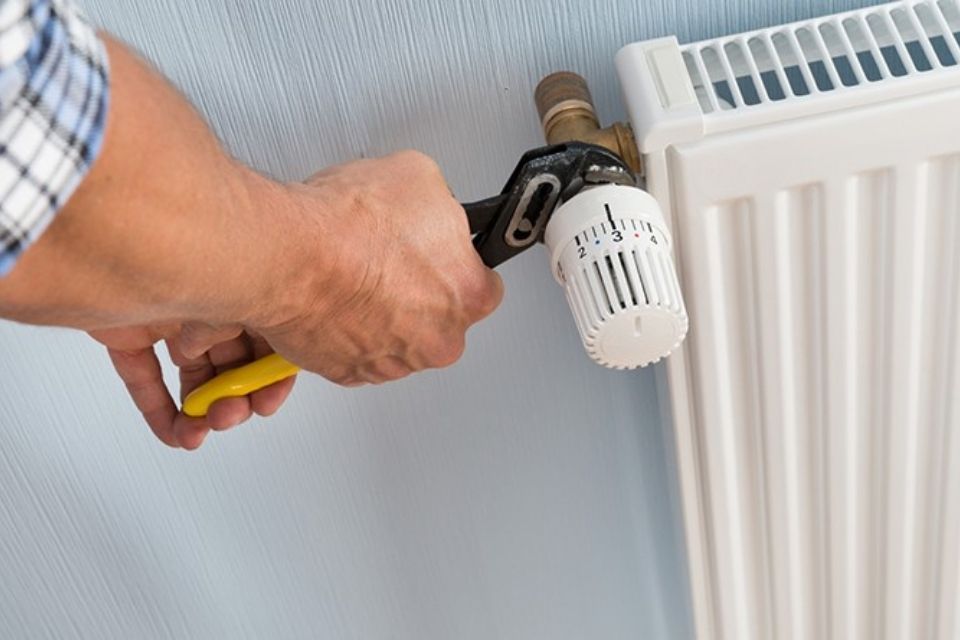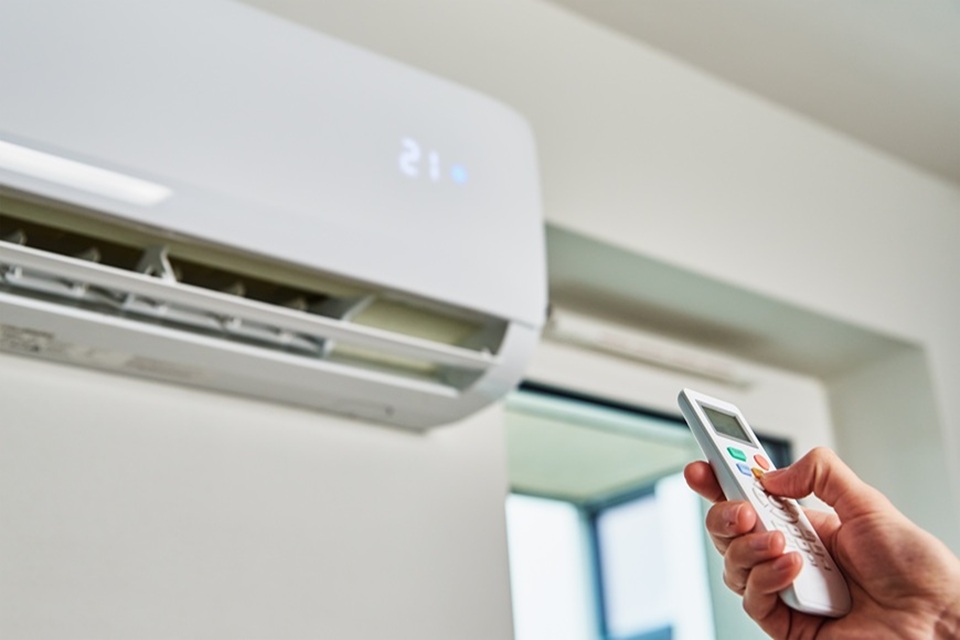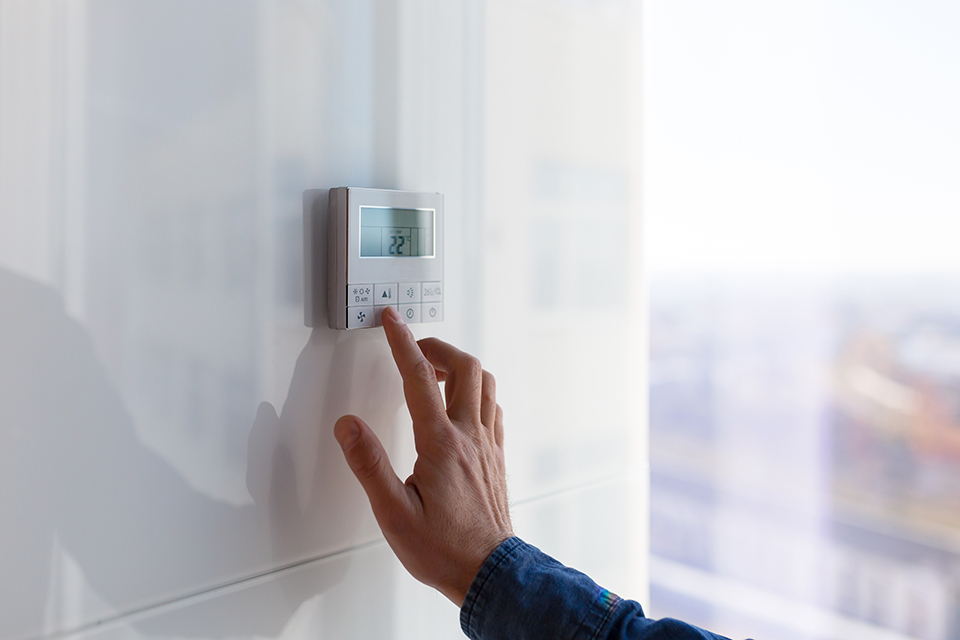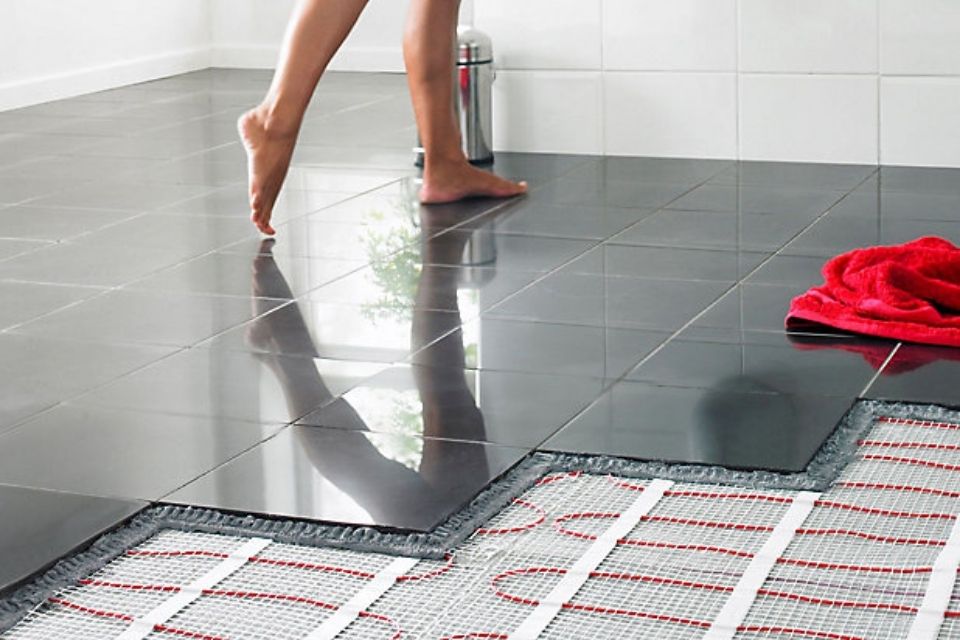How Much Does a Power Flush Cost?
Are you thinking of having a central heating flush?
In the following cost guide, we'll break down how much you'd need to spend on this work for different sized properties.
This article will also discuss the added costs you may incur, the specific supply and labour costs involved, and how long the job might take.
The average cost of power flushing a two-bedroom flat is £320 to £360 with prices rising to about £415 to £455 for a three-bedroom flat, and £470 to £530 for a four-bedroom flat.
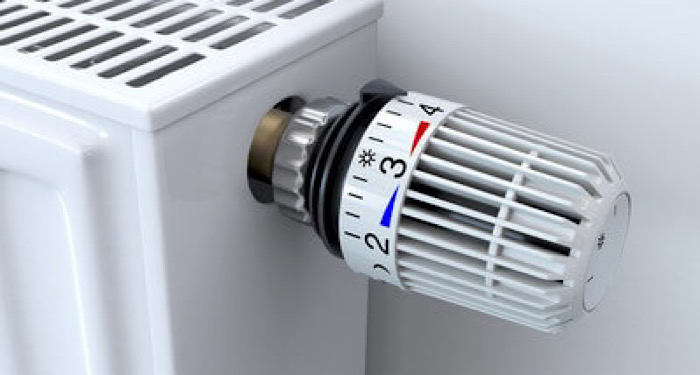
If you have a house with two bedrooms, you'll need to budget for around £385 to £425 to have your central heating system power flushed, £475 to £535 if you live in a three-bedroom house or £550 to £650 if you have a four-bedroom house.
The power flushing prices will also depend on the size of the property, number of radiators, type of central heating, the number of heating engineers hired, ease of access, and where your property is located.
You can expect the highest rates if you live in the southeast and London in particular. On the contrary, labour tends to be cheaper in regions like Scotland, Northern Ireland, and the north of England.
Power Flush Prices
| PROPERTY | COST |
|---|---|
| 2-bedroom Flat (4 radiators) | £320-£360 |
| 2-bedroom House (6 radiators) | £385-£425 |
| 3-bedroom House (10 radiators) | £475-£535 |
| 4-bedroom House (15 radiators) | £550-£650 |
Supply Costs to Power Flush Radiators
In most cases, the supply costs will account for about 20% of the total job cost if you were to hire a professional.
The labour cost would make up around 70-80% of the total bill, and roughly 5% of the cost of power flushing central heating will be attributed to waste removal expenses.
This section will first lay out the material costs involved in a power flush job if performed by a professional before looking at the cost of supplies for undertaking this DIY work.
Please be aware that this is generally not suitable as a DIY project and you should only undertake this work yourself if you know exactly what is involved and have the right skills.
In most cases, homeowners should hire a qualified heating engineer.
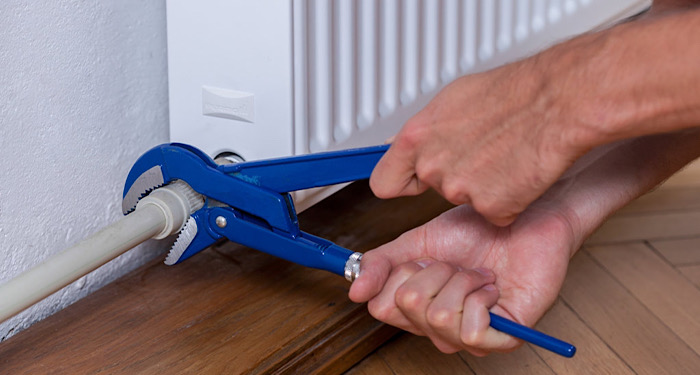
The supply costs of radiator flushing if hiring a professional would be around £75 to £85 for a 2-bedroom flat, £90 to £100 for a 3-bedroom flat, or £110 to £120 for a 4-bedroom flat. You can expect the material costs to be roughly £80 to £90 for a 2-bedroom house, £100 to £110 for a 3-bedroom house or £125 to £135 for a 4-bedroom house.
If you decide to power flush a central heating system by yourself, there are some supplies/materials you may need to purchase before taking on this work.
Depending on the method used, you may need to rent or buy a power flushing machine. Rental prices are about £50 to £75 per day for this equipment. To buy one would likely cost between £400 and £1,400, however.
The cost of a chemical power flushing cleaner product would be about £5 to £20. Other expenses may be incurred.
Supply Costs of Power Flushing
| PROPERTY SIZE | SUPPLY COSTS |
|---|---|
| 2-bedroom Flat - 4 Radiators | £75 to £85 |
| 3-bedroom Flat - 8 Radiators | £80 to £90 |
| 4-bedroom Flat - 11 Radiators | £90 to £100 |
| 2-bedroom House - 6 Radiators | £100 to £110 |
| 3-bedroom House - 10 Radiators | £110 to £120 |
| 4-bedroom House - 15 Radiators | £125 to £135 |
Cost of Supplies for DIY Job
| TOOL/EQUIPMENT | COSTS |
|---|---|
| Power Flushing Machine (Rent) | £70 to £125 |
| Power Flushing Machine (Buy) | £400 to £1,400 |
| Chemical Power Flushing Product | £5 to £15 |
What are the Additional Costs of Central Heating Power Flushing?
A range of added expenses may be included in your bill when having a central heating system power flushed. Let's delve into some recurring examples.
Minimum Fee
A heating engineer may charge a minimum fee, either as an added cost to your total bill or as one that is incorporated in the overall costs.
For the latter, this might come in the form of a daily labour fee. For example, if a power flushing job takes a day and a half, but you are charged by the day, you would still pay for two days of labour.
Type of Central Heating System
The four main types of central heating are storage heating, wet systems, district heating, and warm air systems.
The cost of power flushing any given system can vary based on the type and the exact layout and nature of the system itself.
Size of Property/Number of Radiators
The larger a property, the more radiators it is likely to have, and of course, the number of radiators that need to be power flushed will directly impact how long the job will take. The longer the job lasts, the higher you'll probably pay in labour.
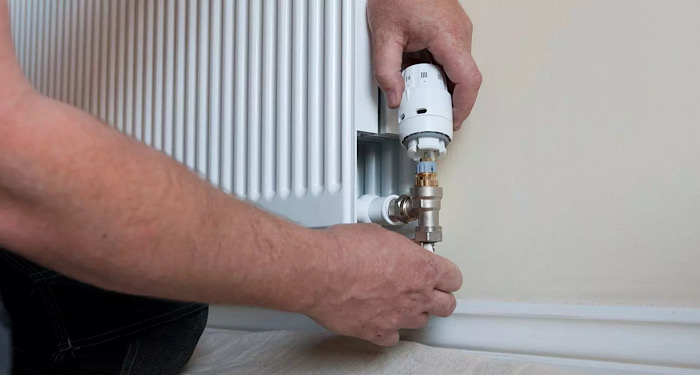
Number of Heating Engineers
In most cases, power flushing is performed by a single heating engineer. However, if two or more professionals are working on the job, the hourly or daily labour costs will be a lot higher.
Given that the job will be completed quicker, the more tradespeople there is, it's hard to say whether this will be a cost liability overall. It will really depend on how effectively a team of heating engineers work together.
Work Duration
The time it takes to power flush will determine the labour cost. The longer the job takes, the more you'll pay. That is, of course, with the exception of certain situations.
For instance, if you are being charged by the day, then a one-day labour cost will apply whether the work takes five hours, six hours, or eight hours.
If you were charged a set cost for the job, then the work duration will not matter although such charges would be determined in advance with the labourer having a clear enough idea as to how long the work will last.
Tradesmen Costs for Power Flushing
The labour costs are separate from the supply costs and are essentially how much you'd pay on an hourly or daily basis or as mentioned, in some cases as a set charge for the job. Let's take a closer look at the labour costs involved in power flushing.
To have a two-bedroom flat power flushed will cost about £230 to £250 in labour with the tradesmen cost landing around £320 to £340 for a three-bedroom flat, or £365 to £405 for a four-bedroom flat.
The tradesmen costs of power flushing a house would be around £270 to £290 if it has two bedrooms, £350 to £390 if it has three bedrooms or £380 to £430 for a four-bedroom house.
Labour costs can vary depending on the number of heating engineers employed, ease of access, the type of central heating system being power flushed, and where you are located.
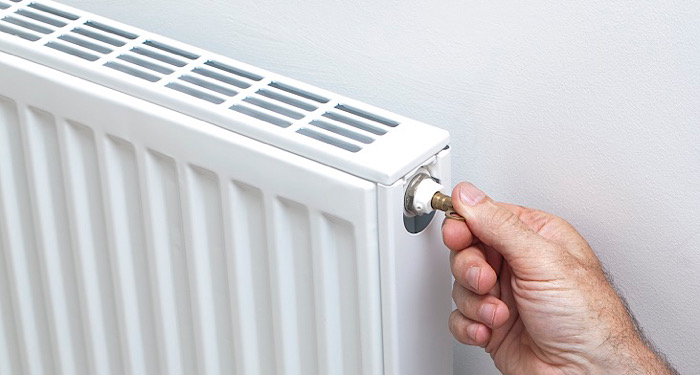
On average, heating engineers charge around £40 to £44 per hour as a national average. However, in Leeds, the rate is about £34 to £40 per hour.
Similar prices can be found throughout the north of England with the hourly labour cost being roughly £36 to £42 an hour in Liverpool and £35 to £41 per hour in Manchester.
On the contrary, like much of the southeast, London has higher rates with an average heating engineer charging approximately £53 to £59 per hour in the capital.
Some of the country's cheapest hourly rates can drop below £30 such as in the Welsh county of Pembrokeshire, where heating engineers charge around £26 to £28 per hour.
On the other side of the country, in the Suffolk Coastal District, heating engineer rates are a whopping £68 to £76 an hour on average.
How Long Does It Take to Power Flush your Radiators?
The time it takes to power flush radiators can vary depending on a range of factors. This section will lay out the duration of power flushing and then consider the various time factors.
It takes on average 2-3 hours to power flush a two-bedroom flat, 4-5 hours for a three-bedroom flat, or 6-7 hours for a four-bedroom flat.
For a house, the job should take about 3-4 hours for a two-bedroom house, 5-6 hours for a three-bedroom house, or a full working day if you have a four-bedroom house.
The work's timeframe will depend on factors such as ease of access, the number of tradespeople hired, and the type of central heating system.
Duration of Power Flushing
| SIZE OF PROPERTY | DURATION |
|---|---|
| 2-bedroom Flat - 4 Radiators | 2-3 hours |
| 3-bedroom Flat - 8 Radiators | 4-5 hours |
| 4-bedroom Flat - 11 Radiators | 6-7 hours |
| 2-bedroom House - 6 Radiators | 3-4 hours |
| 3-bedroom House - 10 Radiators | 5-6 hours |
| 4-bedroom House - 15 Radiators | 1 day |
What's the Difference Between a Power Flush and a Chemical Flush?
A power flush uses chemicals and high-pressure water to clean your central heating, whereas a chemical flush does just that. Chemicals are used along with gravity to clean the system.
The chemicals are then left for a few days to circulate to break down the dirt and rust before being flushed. The final step is the system is refilled with clean water then you’re ready to go!
Benefits of Power Flushing
There are many upsides to power flushing, and in this section, we'll look at some of the core advantages of having your central heating system power flushed.
More Energy Efficient
In most cases, power flushing a central heating system will improve energy efficiency as the system will need to work less after to achieve the same results.
A heating system prior to being power flushed will not perform as well if sludge is getting in the way of it working as it should.
Power flushing can also, therefore, reduce your energy bills.
Reduces Boiler Noises
Power flushing can make your radiators and boiler function better, and this, in turn, will mean less noise.
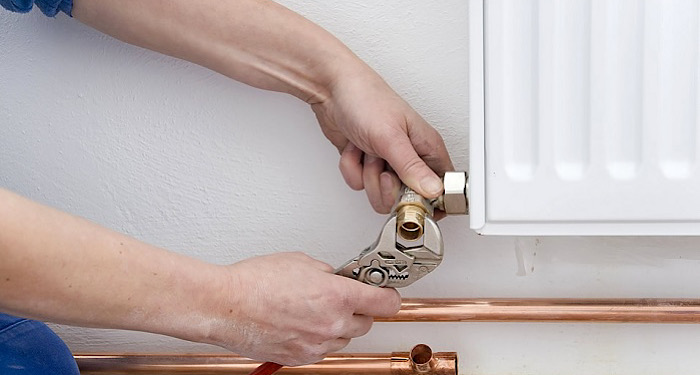
May Increase Lifespan
Having your heating system power flushed can contribute to the durability and longevity of the system.
This is because cleaner heating systems are less prone to wear and tear, and with the system functioning more effectively, the odds are that the system will last longer than it would otherwise.
FAQs
Q: What is power flushing?
A: It is the process of cleaning or/and unblocking a central heating system using high-pressured water and chemicals.
Power flushing can remove rust and sludge that has accumulated in your central heating system.
Q: Is a powerflush worth it?
A: A power flush will prolong the life of your boiler and central heating system by flushing out the build-up of sludge, debris and rust.
Therefor although it appears to am expensive outlay it is far cheap than having an extensive replacement of your heating system
Q: Do building regulations apply to power flushing?
A: Not usually. Building regulations in relation to boilers and radiators often apply when a fitting is being removed or installed.
More information can be found via Planning Portal. Please be aware that building regulations can vary between Scotland/Northern Ireland and England/Wales.
Q: How often should I have my central heating system power flushed?
A: You should have your central heating system power flushed roughly every five to six years or otherwise when it seems necessary.
Some systems will be more resilient than others, depending on their quality and materials.
Q: How long would it take to power flush five radiators?
A: It would take around three hours.
Q: Can I perform a power flush DIY?
A: It is best to hire a professional for this job, given the work's complex nature. Only go about it as a DIY project if you are especially skilled and knowledgeable in this area.
There is also a risk of causing serious damage to your radiators/heating system if you were to go about it yourself.

